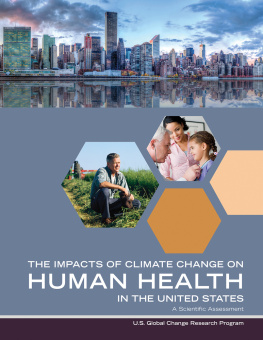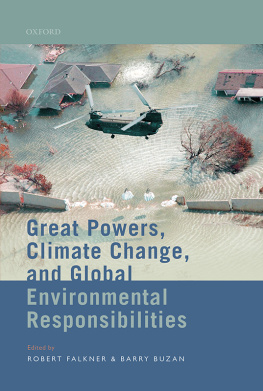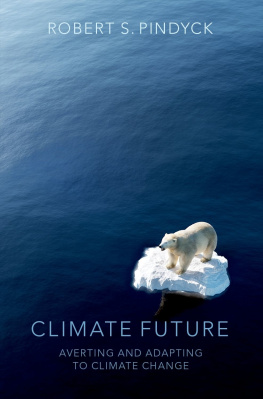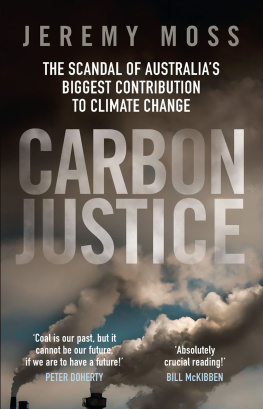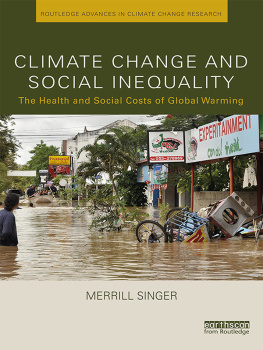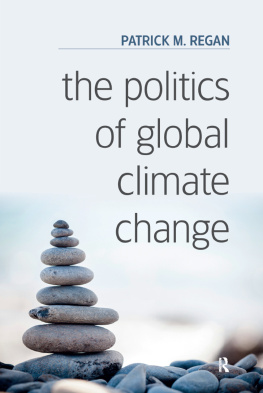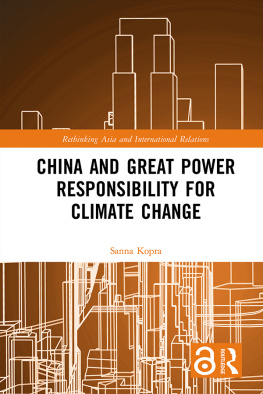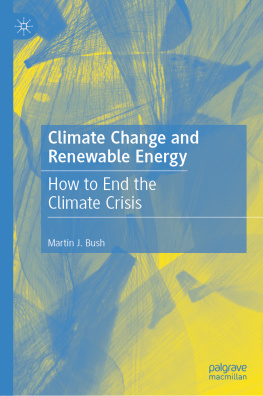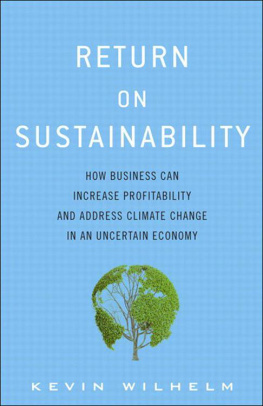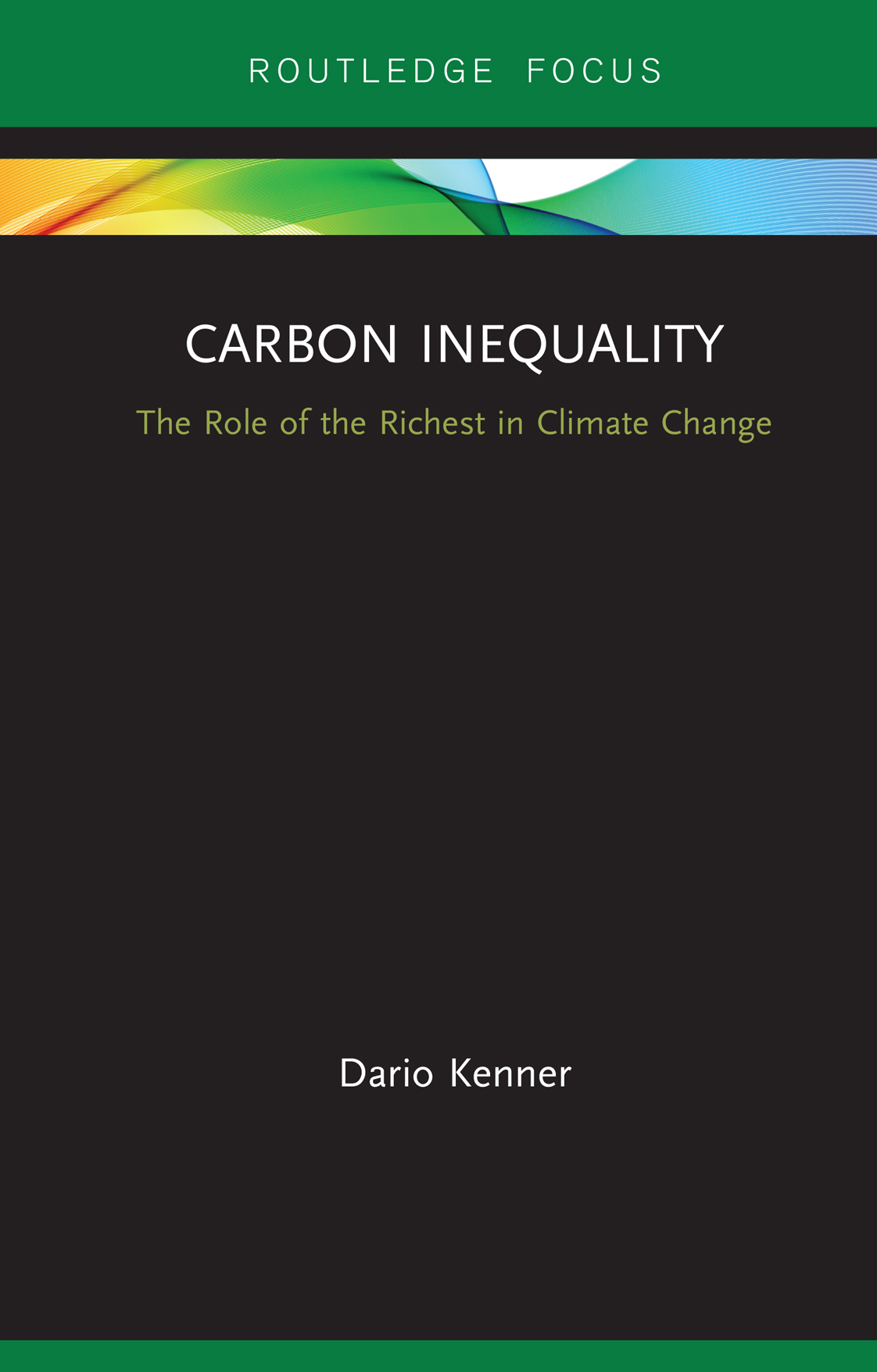Contents
Landmarks
Carbon Inequality
With a specific focus on the United States and the United Kingdom, Carbon Inequality studies the role of the richest people in contributing to climate change via their luxury consumption and their investments. In an innovative contribution, it attempts to quantify personal responsibility for shareholdings in large fossil fuel companies.
This book explores the implications of the richest peoples historic responsibility for global warming, the impacts of which affect them less than most others in global society. Kenner analyses how the richest people running large oil and gas companies have successfully used their political influence to lobby the US and UK government. This assessment of their growing political power is particularly pertinent at a time of increasing inequality and growing public awareness of the impact of climate change. The book also highlights the crucial role of the richest in blocking the low-carbon transition in the US and the UK, exploring how this could be countered to ensure fossil fuels are fully replaced by renewable energy.
This book will be of great relevance to scholars and policy makers with an interest in inequality, climate change and sustainability transitions.
Dario Kenner is a visiting fellow at the Global Sustainability Institute based at Anglia Ruskin University, UK. This book builds on his 2015 working paper Inequality of Overconsumption: the Ecological Footprint of the Richest, published by Anglia Ruskin University.
Routledge Focus on Environment and Sustainability
Indigenous Sacred Natural Sites and Spiritual Governance
The Legal Case for Juristic Personhood
John Studley
Environmental Communication Among Minority Populations
Edited by Bruno Takahashi and Sonny Rosenthal
Solar Energy, Mini-grids and Sustainable Electricity Access
Practical Experiences, Lessons and Solutions from Senegal
Kirsten Ulsrud, Charles Muchunku, Debajit Palit and Gathu Kirubi
Climate Change, Politics and the Press in Ireland
David Robbins
Productivity and Innovation in SMEs
Creating Competitive Advantage in Singapore and Southeast Asia
Azad Bali, Peter McKiernan, Christopher Vas and Peter Waring
Climate Adaptation Finance and Investment in California
Jesse M. Keenan
Negotiating the Environment: Civil Society, Globalisation and the UN
Lauren E. Eastwood
Carbon Inequality
The Role of the Richest in Climate Change
Dario Kenner
For more information about this series, please visit: https://www.routledge.com/Routledge-Focus-on-Environment-and-Sustainability/book-series/RFES
Carbon Inequality
The Role of the Richest in Climate Change
Dario Kenner

First published 2019
by Routledge
2 Park Square, Milton Park, Abingdon, Oxon OX14 4RN
and by Routledge
52 Vanderbilt Avenue, New York, NY 10017
Routledge is an imprint of the Taylor & Francis Group, an informa business
2019 Dario Kenner
The right of Dario Kenner to be identified as author of this work has been asserted by him in accordance with sections 77 and 78 of the Copyright, Designs and Patents Act 1988.
All rights reserved. No part of this book may be reprinted or reproduced or utilised in any form or by any electronic, mechanical, or other means, now known or hereafter invented, including photocopying and recording, or in any information storage or retrieval system, without permission in writing from the publishers.
Trademark notice: Product or corporate names may be trademarks or registered trademarks, and are used only for identification and explanation without intent to infringe.
British Library Cataloguing-in-Publication Data
A catalogue record for this book is available from the British Library
Library of Congress Cataloging-in-Publication Data
Names: Kenner, Dario, author.
Title: Carbon inequality: the role of the richest in climate change / Dario Kenner.
Description: Abingdon, Oxon; New York, NY: Routledge, 2020. | Series: Routledge focus on environment and sustainability | Includes index.
Identifiers: LCCN 2019014361 (print) | LCCN 2019017517 (ebook) | ISBN 9781351171328 (Master) | ISBN 9780815399223 (hardback) | ISBN 9781351171328 (ebook)
Subjects: LCSH: WealthEnvironmental aspects. | Consumption (Economics)Environmental aspects. | Affluent consumers. | Climatic changesSocial aspects.
Classification: LCC HC79.W4 (ebook) | LCC HC79.W4 K457 2020 (print) | DDC 363.738/74dc23
LC record available at https://lccn.loc.gov/2019014361
ISBN: 978-0-8153-9922-3 (hbk)
ISBN: 978-1-351-17132-8 (ebk)
Typeset in Times New Roman
by codeMantra
This book is dedicated to Georgina and our two daughters. Her unwavering support and insightful feedback made this book possible.
My father Jos accompanied me throughout the research and writing. His constant difficult questions and valuable suggestions pushed me to go further and develop my ideas.
My mother Charmian played a crucial role in the final stages with her logic and attention to detail.
I would also like to thank James Boyce, Tina Fawcett, Simon Pirani and Max Lawson for important comments on drafts. I would also like to thank Richard Heede for sharing ideas on the database.
London, March 2019
High and rising inequality is concentrating wealth and political power in the richest people around the world. This trend is clearly present in the United States and the United Kingdom, two countries with large historical responsibility for global warming. In the age of climate change and the sixth mass extinction, there is a situation of carbon inequality where the richest people in the US and the UK have an unequal ability to pollute. This is via their high-carbon luxury consumption and their investment emissions, when they hold shares in companies that produce greenhouse gas emissions.
Wealthy shareholders who are also decision-makers at large multinational oil, gas and coal companies form part of the polluter elite, a group I begin to identify in a database that accompanies this book. Based on the size of their investment emissions I conclude that these decision-makers, such as the executive team and directors, hold greater historical responsibility for climate change. It is time to recognise their unique role in the Anthropocene. There is also an environmental injustice as they suffer fewer of the consequences of pollution from their consumption and investments.
The polluter elite seek to obtain political influence over the state to ensure the profitability of their shareholdings which are the basis of their personal net worth. This is as decision-makers who approve lobbying by their companies, and in some cases in a personal capacity by using their own wealth to donate to political parties. The political influence of the polluter elite has been decisive in slowing down the transition away from fossil fuels over the past few decades. They have exerted their power over the state which depends on fossil fuels to spur economic growth for its legitimacy. They have formed alliances with policy makers to undermine policies that would reduce greenhouse gas emissions. The polluter elite has thus ensured that despite the governments of the US and the UK acknowledging the danger of global warming since the early 1990s, both economies remain heavily reliant on fossil fuels.


